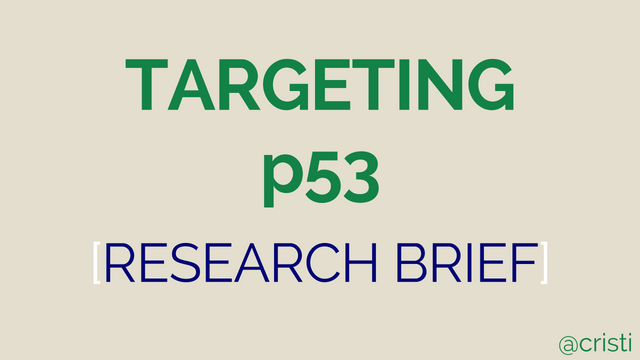
In a research highlight published in Nature Reviews, Zlotorynski (2017) presents the findings of a recent experimental study by Mello et al. (2017) which involved a new target of p53, with implications in cancers; and, I'm summarizing Zlotorynski's highlights...
p53 is tumor suppressor activated by different cellular insults; its activation triggers multiple transcriptional responses which can lead to: apoptosis, cell cycle arrest, and tumor suppression.
Mello and colleagues (2017) showed that the long intergenic (between genes) non-coding RNA Neat1 (nuclear-enriched abundant transcript 1) represents a target gene for p53 that can suppress the initiation of pancreatic cancer. They used mice:
"Using previously generated chromatin immunoprecipitation followed by sequencing (ChIP–seq) and RNA sequencing data sets obtained from mouse embryonic fibroblasts (MEFs), the authors identified Neat1 as a direct target gene of p53. Subsequent analyses in various mouse and human cells showed that its expression is induced by p53 in response to different genotoxic and non-genotoxic agents." [source]
In short, Mello and colleagues (2017) observed that inducing Neat1 expression via p53 suppresses the development of pancreatic pre-malignant lesions, and the potential mechanism by which this occurs is:
"by preventing dedifferentiation of pancreatic cells following oncogene activation. The mechanisms by which Neat1 controls gene expression are still poorly understood." [source]
In my view, a positive take-home from this research is the strengthening of the argument that p53 is central to tumor development; whether or not the neat finding is to be reproduced remains to be seen. Until then, you can find the highlight and the full study by following these links:
To stay in touch with me, follow @cristi
Cristi Vlad, Self-Experimenter and Author
Incidentally the blind mole rate does not get cancer and it has a mutated p53 protein. Very interesting stuff!
Downvoting a post can decrease pending rewards and make it less visible. Common reasons:
Submit
mole rats have been shown to have more than 5 times the concentration of HMM-HA (a form of hyaluronic acid), and this is thought to provide them part of their high protection against cancers.
Downvoting a post can decrease pending rewards and make it less visible. Common reasons:
Submit
You got my vote and a resteem :)
Downvoting a post can decrease pending rewards and make it less visible. Common reasons:
Submit
You can check my post too, some basic idea on breast cancer. Please upvoat and follow if possible. Would be a great encouragement. Thanks
https://steemit.com/health/@applesspatrick/breast-cancer-stay-healthy-stay-updated-and-stay-happy
Downvoting a post can decrease pending rewards and make it less visible. Common reasons:
Submit